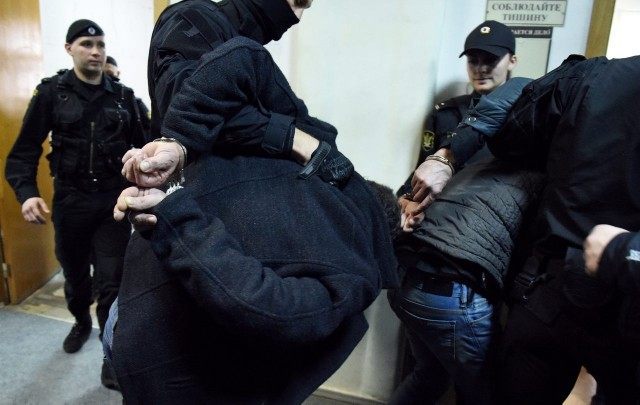Russia’s Federal Security Service (FSB) announced Monday that it had arrested seven members of an Islamic State terror cell who were allegedly planning major jihadist attacks on Moscow and St. Petersburg.
In their press statement, the FSB said that the seven individuals detained Sunday in the Urals city of Yekaterinburg were from Russia and Central Asia and were all members of “the Daesh international terrorist group.” It said that the jihadists had arrived on Russian soil “long before the start of Russian military operation” in Syria.
Russian intelligence claimed to have obtained confessions from members of the cell that revealed they had received military training in Islamic State camps in Syria.
According to the statement, the jihadists “had prepared for huge terrorist acts using homemade explosive devices in the cities of Moscow and St. Petersburg, and in the Sverdlovsk region.” The Monday communiqué further indicated that one of the targets of the attacks was to be Moscow’s public transport.
The Russian secret service revealed that the leader of the group came from a terrorist group in Turkey, and that the jihadists were planning to return to Syria to incorporate into Islamic State military operations there after carrying out their attacks in Russia.
Moscow said that during Sunday’s raid Russia’s counterterrorism forces had seized a homemade bomb containing five kilograms of explosives from the suspects. Two of the suspects told security officers that they had received financial resources and materials for building an explosive device from their ISIS superiors, the statement said.
Russian news agencies added that police had blocked militants in two private houses in the village of Gazi-Yurt in the Russian North Caucasus republic of Ingushetia, saying the fighting between security forces and suspects still continues.
In a similar counterterrorist operation last week in Germany, agents arrested three Algerians suspected of having ties to the jihadist group during a series of coordinated raids at several sites across Germany, including refugee shelters where some of the suspects lived.
Germany took in some 1.1 million migrants last year, and fears are mounting that jihadists have exploited Europe’s worst migrant crisis in decades to slip in undetected.
Security had already been tightened after a wave of migrant-led sexual assaults in the western city of Cologne on New Year’s Eve shocked the country.
Follow Thomas D. Williams on Twitter @tdwilliamsrome

COMMENTS
Please let us know if you're having issues with commenting.